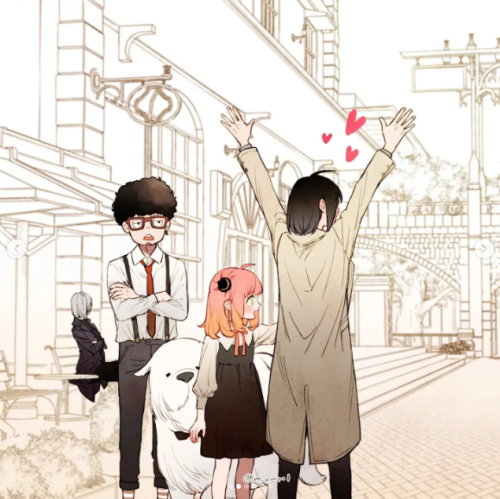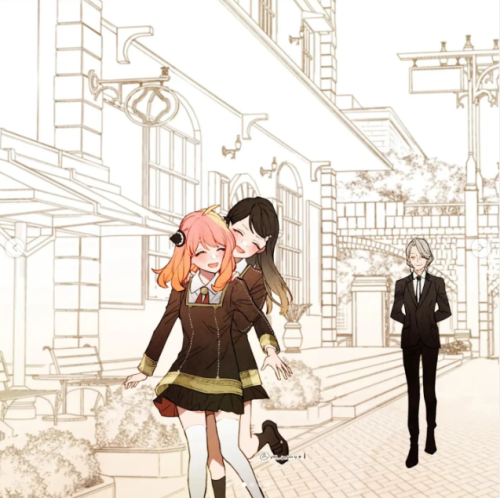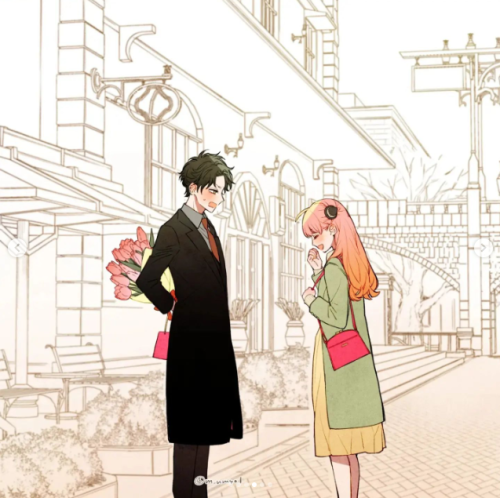5 Things Literary Magazines Look For In Short Stories
5 Things Literary Magazines Look for in Short Stories
Submitting your work for publication in a literary magazine can be nerve-wracking. They outline what they’re looking for when they open for submissions, but it can seem pretty vague.
Here are a few things they generally look for when searching for the next stories they’ll publish.
1. A Story That Sticks With Their Submission Requirements
Literary magazines plan their editions at least a month in advance, if not more. They may create new editions based on a theme, a seasonal motif, or another connecting idea that pulls every story and visual design together.
Always check the submissions page for their requirements. If a magazine wants to create a spooky edition for October but you submit a heartwarming historical fantasy story that has no spooky elements, you won’t get selected.
Requirements also include essential details like page length, word count, and formatting instructions. The editorial teams know how much time they have to read submissions and how much space they have for selected stories in their upcoming edition. Following these requirements makes you much more likely to get selected.
2. A New Perspective
People don’t buy literary magazines to read the same stories over and over again. They’re looking for new perspectives and points of views in stories that have fresh ideas. The editorial team also doesn’t want to read the same types of stories every time they open for submissions.
You can bring a new perspective or twist on their required themes or story details by thinking outside the box to connect with your readers while bringing something fresh to the table.
3. Vivid Characters
It’s almost impossible to enjoy a story when the characters don’t feel real. You can avoid that by creating character profiles or outlines for your cast. Imagine their backstories or write scenes from the most important moments of their life.
Also, consider what they want from your story’s plot. What’s their goal? What will they learn? Vivid characters are dynamic, so they should grow into a different (possibly better, but not always) version of themselves by your story’s resolution.
It’s also helpful to use free online tools to create characters. I have a huge list on this blog post for generating their faces, mapping their world, and inventing other details so they feel like real people to you and your readers.
4. A Meaningful Purpose
You might write a story just to get published, but that might lead to a story that lacks meaning. Published short stories have some kind of meaningful purpose to make them matter to the editorial team and readers.
Your readers might learn a life lesson from your work or process some shared human emotion or experience through your characters. It’s helpful to consider a theme for your story before writing it so it always has a clear purpose.
5. Unexpected Plot Elements
Readers want to be entertained. Entertaining stories sell magazines. Remember to add a few unexpected plot elements or twists as you’re writing a story with the intent to publish it.
I have a few ideas in this blog post that might inspire you, but you can also create plot twists by shifting your perspective.
If a story has a character who stops to talk to someone in a crosswalk, your readers will likely assume they’re about to get hit by a car or pushed into traffic if the scene has rising tension. Counter their expectations by asking yourself, what’s the opposite of what they’re expecting? Your character might face an oncoming car with a distracted driver by lifting it over everyone as it’s about to crash into pedestrians. Maybe they learn how to fly or lie flat on the road as the car passes over them.
Purposefully thinking about what your readers will expect and choosing to do the opposite is a great way to add unexpected plot elements that also pique the interest of editorial teams.
-----
It’s also important to remember that you’re likely submitting a story alongside hundreds if not a thousand other writers. It depends on how popular or well-known the literary magazine is.
You can write a great story and still not get published because a big part of that experience is getting lucky. You have to hope the right editor who will appreciate your narrative style and story choices will be the one to open your submission.
Sometimes writers take years to get published. Give yourself some grace as you send your work off. Whether or not your stories get accepted, you’re still learning from the process and developing your writing skills. Eventually, your work will shine in the place it’s meant to be.
More Posts from Feed-the-trash and Others

Prisons/Jails vs Colleges - More prisons or more colleges?
some interesting stuff I found on the blog of Oriental DreamWorks (an animation company that DreamWorks once held shares in)
Oriental DreamWorks once released the constellation information of the characters during the promotion period of httyd2🤩
Hiccup-Aries (Hiccup’s birthday in the book is February 29th, aka Pisces. I personally think that Oriental Dreamworks made a tiny mistake, has reversed the astrological signs of Hiccup and Astrid)
Astrid-Pisces
Toothless-Scorpio
Stormfly-Libra
Fishlegs-Cancer
Ruff and Tuff-Gemini
Snotlout-Sagittarius
Stoick-Taurus
Valka-Capricornus
Gobber-Gemini
Note: this information is for entertainment purposes only, DreamWorks has not confirmed the zodiac signs of the characters officially










ST POTENTIAL SPOILER WARNING--The Mind Flayer
Once you realize that "opening a gate" is code for Mike's closet door, the show becomes infinitely funnier.
Season Three begins with the Russians trying and failing to open a gate. One scientist is panicking like, "We're close. We've made progress. You can see our progress. We just need more time!" A Russian Officer chokes him out and says, "You have a year."
The next scene cuts to Mike making out with El while "Just a little more time could open closing doors" plays.
Cut to a "year" later--




But you also start to consider that the Mind Flayer is a metaphor for Mike's shame, and you're back to being emotionally destroyed !!






















So essentially the Dungeon Master might unknowingly be the actual Master of Puppets. Perhaps why Vecna needed him gone to take full control.

It appears this might be Vecna's secret card to play against Mike.
Vecna: Do you not see, Micheal? I did not do this to Will.

Family isn't always a mom, a dad, and a child
Sometimes it a murder mom who always has full mother's adrenaline, a spy dad who isn't as observant as he thinks, and a telepathic 4 year old who lied about her age and is literally the only one who knows what the fuck it going on.




I had a really bad migraine last night, but I've run out of everything except these hungarian pain killers my dad gave me 9 years ago, anyway I don't remember anything and I can't feel my tongue and the only thing in my search history is this

Tswwwit’s Masterlist 2.0
Hey, everyone! I decided to put together my own list of @tswwwit‘s stories!
This contains most, if not all, of the stories they’ve posted to their blog! Including things that weren’t previously on their masterlist. I’ve recently updated it to be even more organized!
It’s very long, so the list is under the cut!
Keep reading
Sometimes I don’t even realise something is an expression because it’s so overused that it just sounds like what you’d learn from the basics of English. Like, “here’s pronouns, verbs, also look *insert common expression”.
I was talking to my cousin and I said something like “he was tryna not make it obvi and she didn’t automatically pick up what he was putting down.” And she said “wait, pick up what” and I, “what he was putting down”. A beat. “What was he putting down” and it took me forever to explain it was an expression because I’ve never registered it as one.

Ghost city
-
 wynters-writings liked this · 2 months ago
wynters-writings liked this · 2 months ago -
 newdawnhorizon reblogged this · 5 months ago
newdawnhorizon reblogged this · 5 months ago -
 c-403 liked this · 7 months ago
c-403 liked this · 7 months ago -
 judasisdrafting liked this · 8 months ago
judasisdrafting liked this · 8 months ago -
 soperton liked this · 8 months ago
soperton liked this · 8 months ago -
 on-a-sugar-rush liked this · 9 months ago
on-a-sugar-rush liked this · 9 months ago -
 anathecatlady reblogged this · 9 months ago
anathecatlady reblogged this · 9 months ago -
 anathecatlady liked this · 9 months ago
anathecatlady liked this · 9 months ago -
 midnightlighthowlite reblogged this · 9 months ago
midnightlighthowlite reblogged this · 9 months ago -
 midnightlighthowlite liked this · 9 months ago
midnightlighthowlite liked this · 9 months ago -
 londonefog liked this · 9 months ago
londonefog liked this · 9 months ago -
 foundfamyanderes liked this · 9 months ago
foundfamyanderes liked this · 9 months ago -
 newdawnhorizon reblogged this · 9 months ago
newdawnhorizon reblogged this · 9 months ago -
 okaydays liked this · 9 months ago
okaydays liked this · 9 months ago -
 vesper-roux reblogged this · 9 months ago
vesper-roux reblogged this · 9 months ago -
 astraeasilvers liked this · 10 months ago
astraeasilvers liked this · 10 months ago -
 feed-the-trash reblogged this · 10 months ago
feed-the-trash reblogged this · 10 months ago -
 feed-the-trash liked this · 10 months ago
feed-the-trash liked this · 10 months ago -
 froggytroll liked this · 10 months ago
froggytroll liked this · 10 months ago -
 the-writer-retreat reblogged this · 10 months ago
the-writer-retreat reblogged this · 10 months ago -
 codinekiss liked this · 10 months ago
codinekiss liked this · 10 months ago -
 attila45 liked this · 10 months ago
attila45 liked this · 10 months ago -
 rheatic liked this · 10 months ago
rheatic liked this · 10 months ago -
 bookwormtck liked this · 10 months ago
bookwormtck liked this · 10 months ago -
 manwhorror liked this · 10 months ago
manwhorror liked this · 10 months ago -
 eventideintrigue liked this · 10 months ago
eventideintrigue liked this · 10 months ago -
 saturnatdawn liked this · 10 months ago
saturnatdawn liked this · 10 months ago -
 cursedlimon liked this · 10 months ago
cursedlimon liked this · 10 months ago -
 maudlin-scribbler liked this · 10 months ago
maudlin-scribbler liked this · 10 months ago -
 lactodebillus-bulgaricus reblogged this · 10 months ago
lactodebillus-bulgaricus reblogged this · 10 months ago -
 lactodebillus-bulgaricus liked this · 10 months ago
lactodebillus-bulgaricus liked this · 10 months ago -
 livewirex liked this · 10 months ago
livewirex liked this · 10 months ago -
 pondersandtea liked this · 10 months ago
pondersandtea liked this · 10 months ago -
 belovedmoon10 liked this · 10 months ago
belovedmoon10 liked this · 10 months ago -
 squiddude2578 liked this · 10 months ago
squiddude2578 liked this · 10 months ago -
 starsick1979 liked this · 10 months ago
starsick1979 liked this · 10 months ago -
 27paperlilies liked this · 10 months ago
27paperlilies liked this · 10 months ago -
 thetahat liked this · 10 months ago
thetahat liked this · 10 months ago -
 theannoyingurge reblogged this · 10 months ago
theannoyingurge reblogged this · 10 months ago -
 theannoyingurge liked this · 10 months ago
theannoyingurge liked this · 10 months ago -
 blindedguilt-archived liked this · 10 months ago
blindedguilt-archived liked this · 10 months ago -
 storycraftcafe liked this · 10 months ago
storycraftcafe liked this · 10 months ago -
 waywardtheory liked this · 10 months ago
waywardtheory liked this · 10 months ago -
 rumholdingwriter liked this · 10 months ago
rumholdingwriter liked this · 10 months ago -
 writersattempts reblogged this · 10 months ago
writersattempts reblogged this · 10 months ago -
 rosegardenpatsu reblogged this · 10 months ago
rosegardenpatsu reblogged this · 10 months ago -
 iloveschiaparelli liked this · 10 months ago
iloveschiaparelli liked this · 10 months ago
